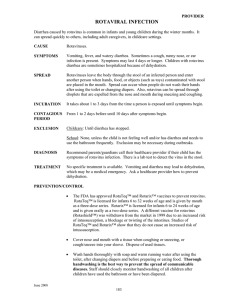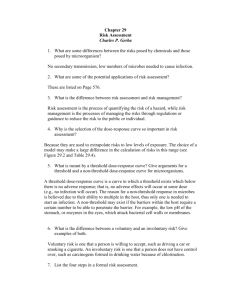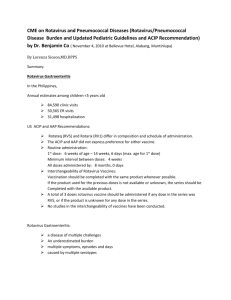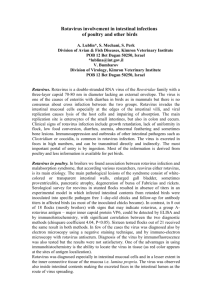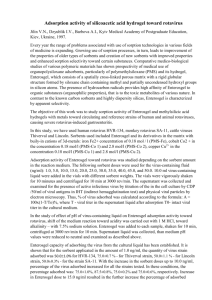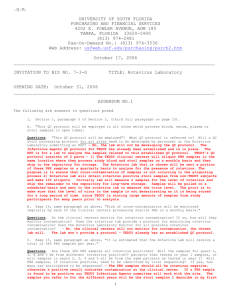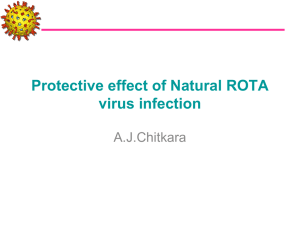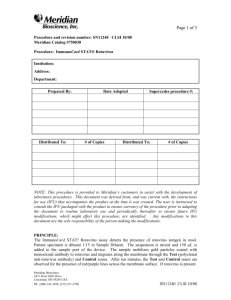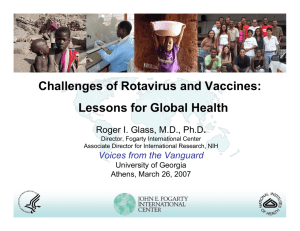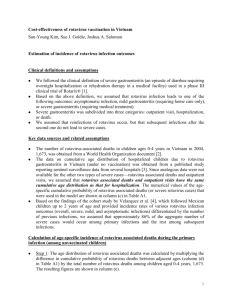use of enterosgel in the treatment of rotavirus infection in
advertisement
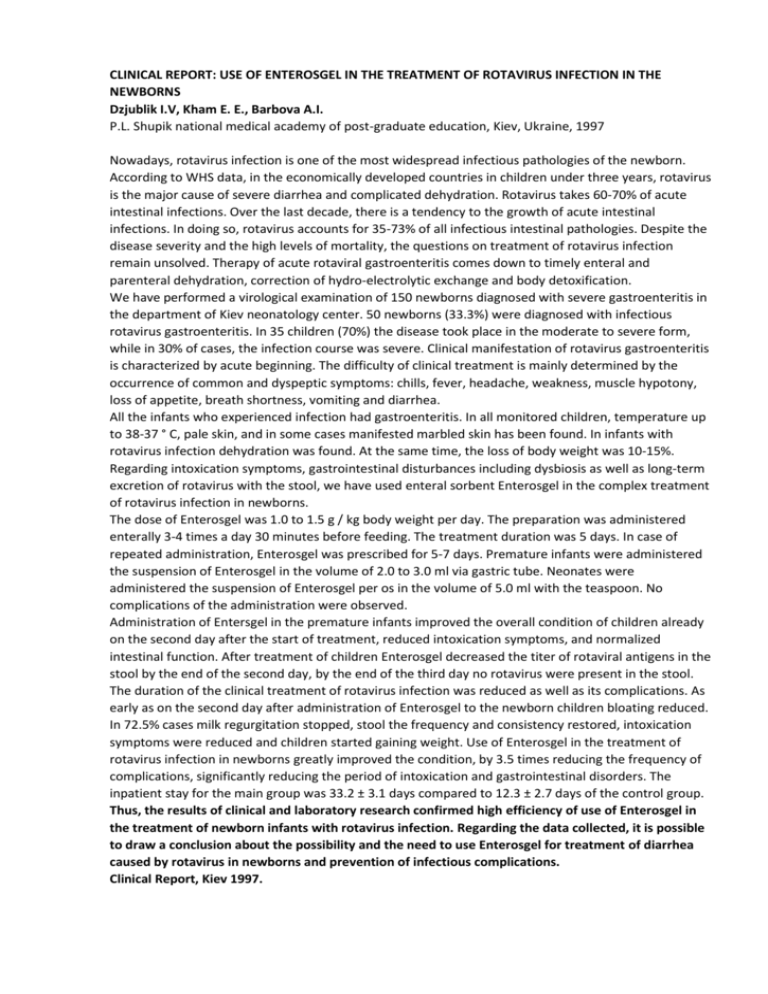
CLINICAL REPORT: USE OF ENTEROSGEL IN THE TREATMENT OF ROTAVIRUS INFECTION IN THE NEWBORNS Dzjublik I.V, Kham E. E., Barbova A.I. P.L. Shupik national medical academy of post-graduate education, Kiev, Ukraine, 1997 Nowadays, rotavirus infection is one of the most widespread infectious pathologies of the newborn. According to WHS data, in the economically developed countries in children under three years, rotavirus is the major cause of severe diarrhea and complicated dehydration. Rotavirus takes 60-70% of acute intestinal infections. Over the last decade, there is a tendency to the growth of acute intestinal infections. In doing so, rotavirus accounts for 35-73% of all infectious intestinal pathologies. Despite the disease severity and the high levels of mortality, the questions on treatment of rotavirus infection remain unsolved. Therapy of acute rotaviral gastroenteritis comes down to timely enteral and parenteral dehydration, correction of hydro-electrolytic exchange and body detoxification. We have performed a virological examination of 150 newborns diagnosed with severe gastroenteritis in the department of Kiev neonatology center. 50 newborns (33.3%) were diagnosed with infectious rotavirus gastroenteritis. In 35 children (70%) the disease took place in the moderate to severe form, while in 30% of cases, the infection course was severe. Clinical manifestation of rotavirus gastroenteritis is characterized by acute beginning. The difficulty of clinical treatment is mainly determined by the occurrence of common and dyspeptic symptoms: chills, fever, headache, weakness, muscle hypotony, loss of appetite, breath shortness, vomiting and diarrhea. All the infants who experienced infection had gastroenteritis. In all monitored children, temperature up to 38-37 ° C, pale skin, and in some cases manifested marbled skin has been found. In infants with rotavirus infection dehydration was found. At the same time, the loss of body weight was 10-15%. Regarding intoxication symptoms, gastrointestinal disturbances including dysbiosis as well as long-term excretion of rotavirus with the stool, we have used enteral sorbent Enterosgel in the complex treatment of rotavirus infection in newborns. The dose of Enterosgel was 1.0 to 1.5 g / kg body weight per day. The preparation was administered enterally 3-4 times a day 30 minutes before feeding. The treatment duration was 5 days. In case of repeated administration, Enterosgel was prescribed for 5-7 days. Premature infants were administered the suspension of Enterosgel in the volume of 2.0 to 3.0 ml via gastric tube. Neonates were administered the suspension of Enterosgel per os in the volume of 5.0 ml with the teaspoon. No complications of the administration were observed. Administration of Entersgel in the premature infants improved the overall condition of children already on the second day after the start of treatment, reduced intoxication symptoms, and normalized intestinal function. After treatment of children Enterosgel decreased the titer of rotaviral antigens in the stool by the end of the second day, by the end of the third day no rotavirus were present in the stool. The duration of the clinical treatment of rotavirus infection was reduced as well as its complications. As early as on the second day after administration of Enterosgel to the newborn children bloating reduced. In 72.5% cases milk regurgitation stopped, stool the frequency and consistency restored, intoxication symptoms were reduced and children started gaining weight. Use of Enterosgel in the treatment of rotavirus infection in newborns greatly improved the condition, by 3.5 times reducing the frequency of complications, significantly reducing the period of intoxication and gastrointestinal disorders. The inpatient stay for the main group was 33.2 ± 3.1 days compared to 12.3 ± 2.7 days of the control group. Thus, the results of clinical and laboratory research confirmed high efficiency of use of Enterosgel in the treatment of newborn infants with rotavirus infection. Regarding the data collected, it is possible to draw a conclusion about the possibility and the need to use Enterosgel for treatment of diarrhea caused by rotavirus in newborns and prevention of infectious complications. Clinical Report, Kiev 1997.
